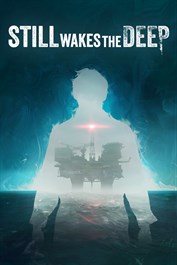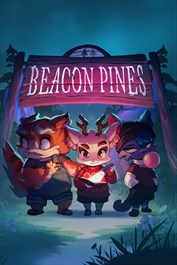 Sometime after I learned that there’s a game about Lovecraftian horrors on an oil rig, I learned that there’s a TV show about strange goings on in the all consuming mist (which may or may not be Lovecraftian or for that matter Kingy[1]; I wouldn’t know, as I have tried to avoid spoilers for The Rig since it seems cool enough to look into), and I have no point other than that’s a weird coincidence. Like, even if they aren’t both Lovecraftian, what are the odds that two media regarding oil rigs would both come across my radar at the same time, much less of both tweaking my interest?
Sometime after I learned that there’s a game about Lovecraftian horrors on an oil rig, I learned that there’s a TV show about strange goings on in the all consuming mist (which may or may not be Lovecraftian or for that matter Kingy[1]; I wouldn’t know, as I have tried to avoid spoilers for The Rig since it seems cool enough to look into), and I have no point other than that’s a weird coincidence. Like, even if they aren’t both Lovecraftian, what are the odds that two media regarding oil rigs would both come across my radar at the same time, much less of both tweaking my interest?
None of that is I suppose especially important to Still Wakes the Deep, a game named after a particularly evocative phrase from a Scottish poem and set on Christmas Day 1975 on an oil rig in the North Sea. This is how I learned that oil rigs are not just built in relatively shallow water, but that rather they float. It is horrifying in its own right to be floating on the surface of the ocean, connected to the surface below not by four legs, but just by the drill with which you are penetrating the earth’s sunken crust. Imagine how much more horrifying, then, were the pocket you opened to contain not oil, but instead colors out of space, growing tentacles, and madness.
Caz McLeary is a man on the verge of losing everything, and his new job as electrician on an oil rig is partly effect, partly cause of this imminent loss. At least, that’s what he seems to believe and what all the evidence in the early game shows us, as he reads an angry letter from his wife, and then faces a somehow even angrier boss waving an arrest warrant in his face. But moments after that scene plays out, we and he learn that in fact he was nowhere close to losing everything, at least not then. It’s all a matter of properly defining “everything”. …and for that matter, “lose”.
I wasn’t expecting this to be a walking sim. That did not make it a bad game, but I sometimes wished for a little more control over events. Just a little, you know? Actually, as I think about it, the most proper audience for my plaintive request for more control over the events of December 25, 1975 is one Cameron “Caz”[2] McCleary, innit?
Is it apparent I liked this game? Well, I did. It was both mostly likable and immensely affective. Definitely worth a look.
[1] Why don’t we have a proper adjective for the way King writes? Probably because he doesn’t mostly write in a specific way, other than when it’s about the human horror of small towns. But it still feels like he deserves one, is all.
[2] British (in the imperial sense) people are really bad at name-shortening. Cameron = Caz? Jeremy = Jez? Come on, chaps, get it together.

 I played another entire game over the past few days. This is so so weird. (Which I say every time I finish a game, I know. But it is! Especially relative to how long it’s been since I finished a book[1].)
I played another entire game over the past few days. This is so so weird. (Which I say every time I finish a game, I know. But it is! Especially relative to how long it’s been since I finished a book[1].) So far, my favorite thing about Xbox’s Game Pass service is that it gives me the freedom to try things out that I cannot otherwise convince myself to pay for. To wit,
So far, my favorite thing about Xbox’s Game Pass service is that it gives me the freedom to try things out that I cannot otherwise convince myself to pay for. To wit,  The biggest problem with
The biggest problem with